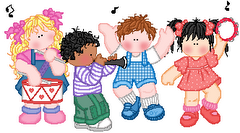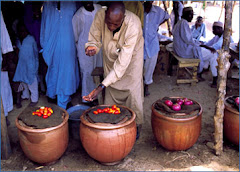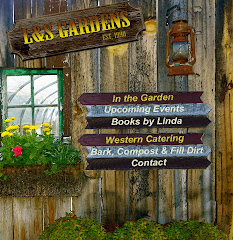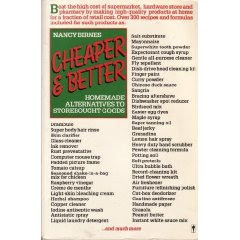By Tyler F. Ray
Homeland Security Emergency Manager
Washington State Patrol
(From the Inside/Out, September/October Edition 2008)
“The City of Everett has recently launched and emergency preparedness campaign that asks the question, who depends on you? As we winter the winter storm season and remember the flooding and other tragedies that affected oru communities last year, this is an important question for each of us in the WSP family to reflect upon. Every one of us whether commissioned, civil service or retired has others that rely upon us every day. Most notably, the public depends on WSP to provided critical public safety services, both every day and, even more so, in the event of a disaster or large-scale emergency. It is not just the public, however, that depends on us: each of us has families, loved ones, neighbors and others that place their well-being in the trust of our actions. We are public servants, but first of all we are parents, children, spouses, partners and responsible citizens.
To continue to provice the best in public safety servies in a disaster, we need to ensure that those who depend on us know what to do when we’re not there and they have the supplies needed to stay safe and comfortable. Does your son or daughter know what to do if there’s an emergency? How will you contact them? Do you have food, water, and supplies if the power goes out? Does your family know where supplies are kept? During Hurrican Katrina, we saw first responders abandon their posts, forced to choose between duty and their loved ones. Acting responsibly today will ensure we won’t have to make theis difficult decision should an earthquake, tsunami, or other Katrina-like disaster affect our state.
Will you be ready to respond, and have you taken the necessary steps to guarantee that those wo dependon you are adequately prepared to take care of themselves?
There are three simple things that we can all do to become better prepared:
1. Build a kit - In emergency preparation, it is best to stick with the basics: fresh water, food, clean air, and warmth.
2. Have a plan - Your family may not be together when disaster strikes, so it is important to plan in advance: how you will contact one another; how you will get back together; and what you will do in different situations.
3. Become informed - Some of the things you can do to prepare for the unexpected, such as making an emergency supply kit and developing a family communications plan, are the same for both a natural or man-made emergency. However, there are important differences among potential emergencies that will impact the decisions you make and the actions you take. Learn more about the potential emergencies that could happen where you live and the appropriate way to respond to them. You can find information on how to become more informed at the following sites:
http://www.ready.gov/
http://www.redcross.org/
http://www.emd.wa.gov/
Everyone should have a plan.
When it comes to natural disasters or terrorist attacks, we must have the tools and plans in place to make it on our own, at least for a period of time, no matter where we are when disaster strikes. WSP wants its employees, past and present, to prepare for possible emergencies. In the next few page is information to start planning and preparing your family to be ready should a disaster or terrorist attack occur.
Before the Emergency … Make a Plan
Family Emergency Plan:
It may be easier to make a long-distance phone call than to call across town, so an out-of-town contact may be in a better position to communicate among separated family members.
Be sure every member of your family knows the phone number and has coins or a prepaid phone card to call the emergency contact. You may have trouble getting through, or the telephone system may be down altogether, but be patient.- Consider how a disaster might affect your individual needs.
- Plan to make it on your own, at least for a period of time. It’s possible that you will not have access to a medical facility or even a drugstore.
- Identify what kinds of resources you use on a daily basis and what you might do if they are limited or not available.
Get an emergency supply kit.- If you must evacuate, take your pets with you, if possible. However, if you are going to a public shelter, it is important to understand that animals may not be allowed inside.
Emergency Information :
Find out what kinds of disasters, both natural and man-made, are most likely to occur in your area and how you will be notified. Methods of getting your attention vary from community to community. One common method is to broadcast via emergency radio and TV broadcasts. You might hear a special siren, or get a telephone call, or emergency workers may go door-to-door.
Emergency Plans:
You may also want to inquire about emergency plans at places where your family spends time: work, daycare and school. If no plans exist, consider volunteering to help create one. Talk to your neighbors about how you can work together in the event of an emergency. You will be better prepared to safely reunite your family and loved ones during an emergency if you think ahead and communicate with others in advance.
Older Americans:
Each person’s needs and abilities are unique, but every individual can take important steps to prepare for all kinds of emergencies and put plans in place. By evaluating your own personal needs and making an emergency plan, you can be better prepared for any situation.
Plan in advance for shelter alternatives that will work for both you and your pets; consider loved ones or friends outside of your immediate area who will be willing to host you and your pets in an emergency.
People With Disabilities and Other Special Needs:
- Create a support network to help in an emergency.
- Tell these people where you keep your emergency supplies.
- Give one member of your support network a key to your house or apartment.
- Contact your city or county government’s emergency information management office. Many local offices keep lists of people with disabilities so they can be located quickly in a sudden emergency.
- Wear medical alert tags or bracelets to help identify your disability.
For more information and tools related to emergency preparedness for persons with disabilities, go to Emergency Preparedness for Individuals with Disabilities’ Resource Center at
http://www.disabilitypreparedness.gov/Prepare for Disasters Before they Strike:
Build a Disaster Supplies Kit
Build Your Preparedness Kit Checklist:
Items in My Preparedeness Kit :
Water
Food
Medications and Special Items
Tools and Supplies
Sanitation
Clothing and Bedding
Emergency Car Kit
Important Family Documents
First Aid Kit
There are six basics you should stock for your home in case of an emergency: water, food, first aid supplies, clothing and bedding, tools and emergency supplies, and special items for medical conditions. Keep the items that you would most likely need during an evacuation in an easy-to-carry container. Below is a list of what should be included in your kit for a complete list of information regarding preparedness, please visit
http://www.read.gov/ or http://www.emd.wa.gov/
Recommended Items to Include in a Basic Emergency Supply Kit:
- Water, one gallon per person per day for at least three days, for drinking and sanitation.
- Food, at least a three-day supply of nonperishable food.
- Battery-powered or hand crank radio and a NOAA Weather Radio with tone alert and extra batteries for both.
- Flashlight and extra batteries.
- First aid kit.
- Whistle to signal for help.
- Dust masks for family members, to help filter contaminated air and plastic sheeting and duct tape to shelter-in-place.
- Moist towelettes, 5 gallon bucket, garbage bags and plastic ties for personal sanitation.
- Wrench or pliers to turn off utilities.
- Can opener for food (if kits contains canned food)
- Local maps.
- Additional Items to Consider Adding to an Emergency Supply Kit:
- Prescription medications and glasses.
- Infant formula and diapers.
- Pet food and extra water for your pets.
Important family documents such as copies of insurance policies, identification and bank account records in a waterproof, portable container. - Cash or travelers’ checks and change.
- Emergency reference material such as a first aid book or information from



















No comments:
Post a Comment